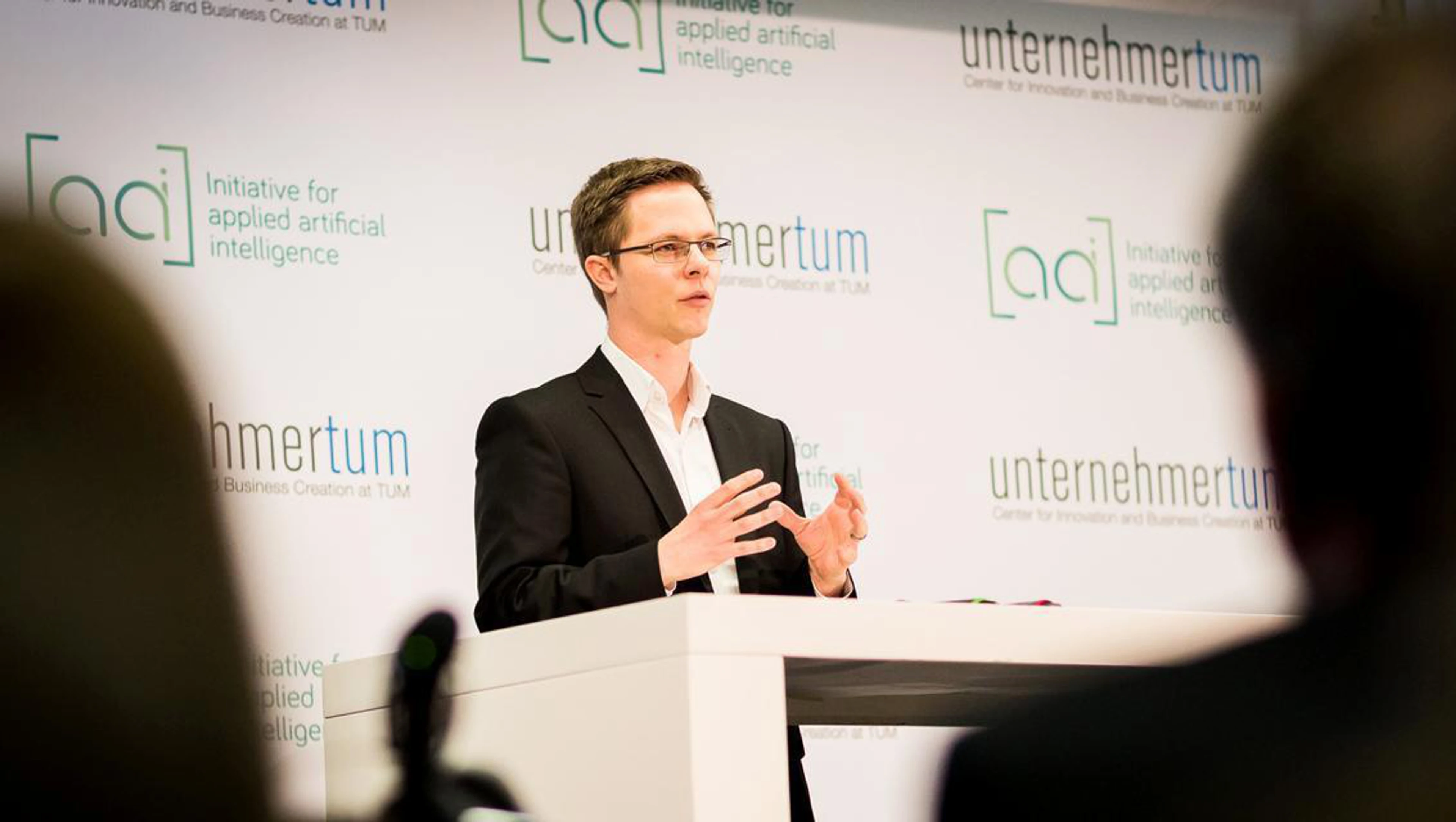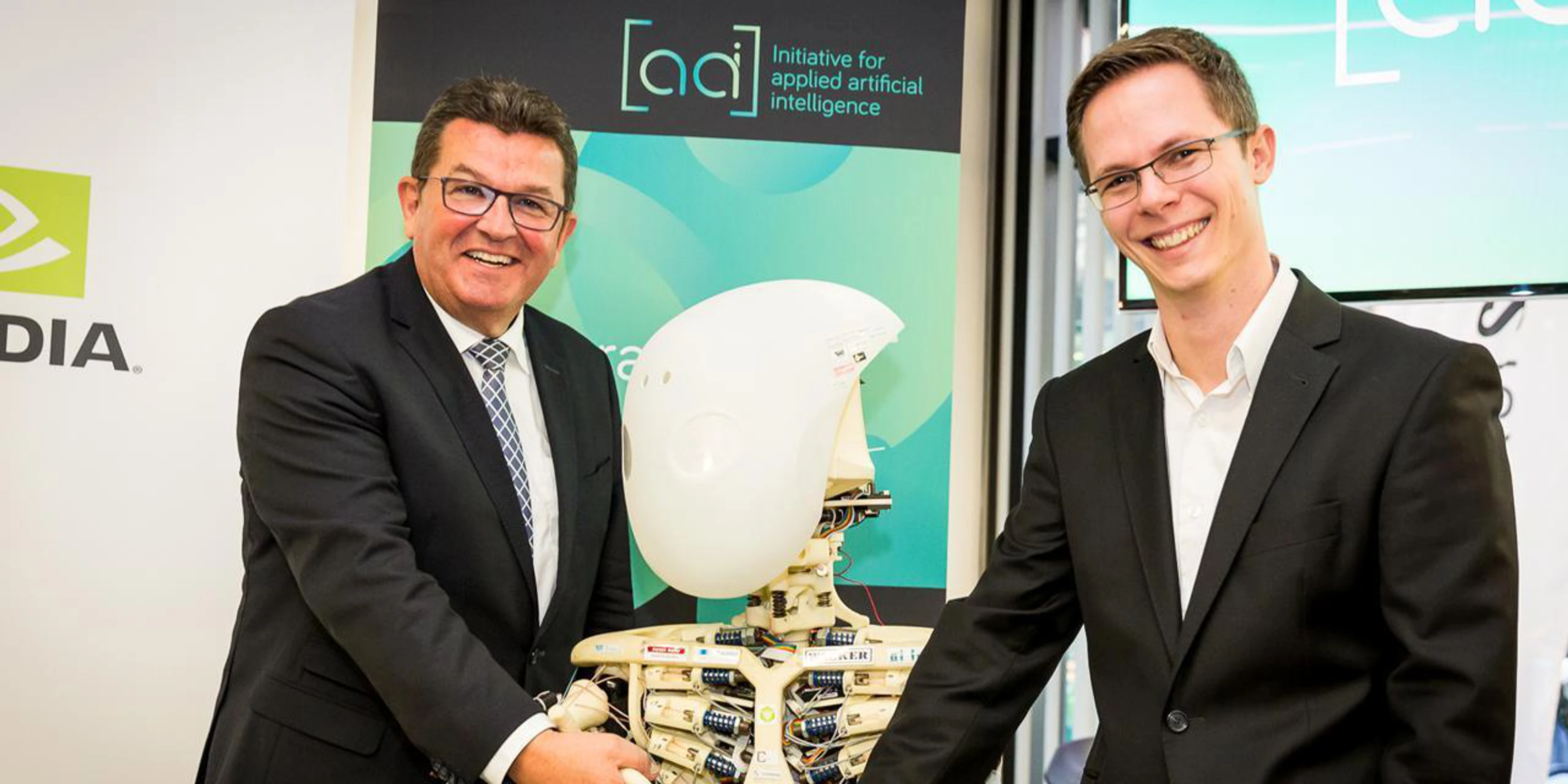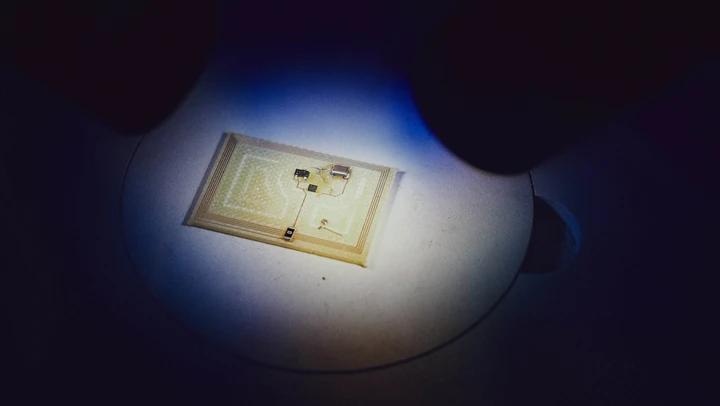 © UnternerhmerTUM / Bert Willer
© UnternerhmerTUM / Bert WillerAs Managing Director of UnternehmerTUM Projekt GmbH, Andreas Liebl is responsible for building the appliedAI initiative with partners such as Google and NVIDIA. With 26 partners, selected startups and over 100 committed students, the initiative is already one of the largest initiatives in Europe in the field of applied artificial intelligence (AI). Before joining UnternehmerTUM, Andreas worked for five years at McKinsey and in the meantime earned his doctorate at the Chair of Entrepreneurship at the Technical University of Munich. In his doctoral thesis, he accompanied 120 startups for one year and examined their corporate culture and identity.
Can you briefly explain the appliedAI initiative?
The initiative is the place where the latest technologies from the research area of AI are transferred into the application and thus made tangible. Currently there is a lot of research in this field in Germany, but there is still a gap in its scope. We would like to close this gap. Therefore UnternehmerTUM with its strong network of startups, companies, scientists and public institutions offers the perfect platform for this. In addition, we want to prepare companies and their employees for a digitized working environment.
Questions like "What is possible with AI? And what is not possible?" are a component here. At the same time, however, there must also be a political and social discussion about the possibilities of AI applications. How will our lives change in the future?
Do we have to be afraid of AI replacing our jobs?
AIs won't be able to act intuitively or react to unpredictable things for a long time to come. However, foreseeable activities can be taken over by AI so that people can concentrate on value-adding and creative tasks. Through this separation, however, few will work a lot and also earn a lot, while many will work little and earn little. New models of society must therefore be found early on to prevent the growing discrepancy between rich and poor.
Questions like 'What is possible with AI? And what is not possible?' are a component here. At the same time, however, there must also be a political and social discussion about the possibilities of AI applications. How will our lives change in the future?
Andreas Liebl, Head of appliedAI Initiative
Do we have to be afraid of AI replacing our jobs?
AIs won't be able to act intuitively or react to unpredictable things for a long time to come. However, foreseeable activities can be taken over by AI so that people can concentrate on value-adding and creative tasks. Through this separation, however, few will work a lot and also earn a lot, while many will work little and earn little. New models of society must therefore be found early on to prevent the growing discrepancy between rich and poor.
 © UnternehmerTUM / Bert Willer
© UnternehmerTUM / Bert Willerv.l.: Franz Josef Pschierer, Dr. Andreas Liebl
Do you have a concrete idea of the social impact AI could have on humanity in ten years?
Over the last 150 years, the focus has been on automating physical work, starting with the first electric loom. Now the focus is increasingly on the automation of knowledge work. We are currently on the threshold of automation, which increases and accelerates complexity in all areas. If AIs learn through algorithms and can thus improve independently, it is not foreseeable where we will be in 10 years time. However, the aim of using AI should always be to support people in their work and not to replace them.
If AIs learn through algorithms and can thus improve independently, it is not foreseeable where we will be in 10 years time. However, the aim of using AI should always be to support people in their work and not to replace them.
Andreas Liebl, Head of appliedAI Initiative
What could such human support through AI look like?
In the healthcare sector, for example, a large amount of patient data is generated every day. AI can help physicians to channel and select the information overload. Based on this, diagnosis could be quicker and more precise. For example, skin cancer can be detected early with the help of AI. AI can use images to determine whether the cancer is present and, if necessary, even the type of cancer.
What are your goals with this initiative?
At the moment it is important to generate results, to build use cases and to be visual in the field of application in order to convey Germany in a leading position. You don't have a competitive advantage just by doing research.
The decisive factor is which country manages to use the latest technologies most quickly in products.
Andreas Liebl, Head of appliedAI Initiative
At the same time, however, it must also be our role to explain these developments and products in an understandable way. Because of the rapid development, many people do not understand what digitalization or AI actually means. We want to clarify, discuss and point out opportunities for society.
Therefore, we do not only want to be the leading initiative in the field of AI application, but also to promote the urgently needed political and social debate on AI.
More information: https://appliedai.de/





















